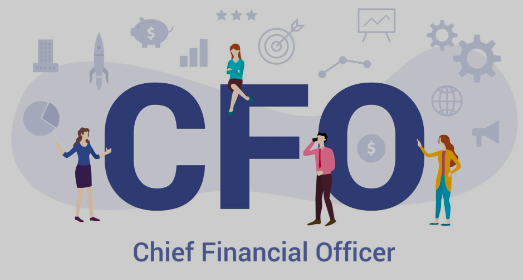An In-Depth Exploration of the Chief Financial Officer (CFO) Role

In the complex orchestration of a business, the Chief Financial Officer (CFO) stands as the conductor, navigating the intricate notes of finance to create a harmonious financial melody. The role of a CFO extends far beyond number-crunching; it encompasses strategic financial leadership, risk management, and the orchestration of fiscal decisions that drive the success of an organization. This essay delves into the multifaceted world of CFOs, examining their responsibilities, the critical skills required, challenges faced, and the profound impact they have on shaping the financial trajectory of a company.
The CFO in the Corporate Symphony
A. Definition and Evolution
- Defining the CFO Role: The CFO is a senior executive responsible for managing the financial actions of a company, playing a pivotal role in shaping its financial strategy.
- Evolution of the CFO: The role of the CFO has evolved from a traditional financial overseer to a strategic partner, actively involved in shaping the overall direction of the business.
Responsibilities of a CFO
A. Financial Strategy and Planning
- Strategic Financial Planning: CFOs are at the forefront of developing and executing financial strategies aligned with the overall business objectives.
- Budgeting and Forecasting: They oversee the budgeting process, providing realistic financial forecasts to guide decision-making.
B. Financial Reporting and Compliance
- Financial Reporting: Ensuring accurate and timely financial reporting, including the preparation of financial statements and disclosures.
- Compliance Management: Navigating through complex regulatory environments to ensure the company’s adherence to financial laws and standards.
C. Risk Management
- Risk Identification and Mitigation: Identifying financial risks and developing strategies to mitigate them, ensuring the company’s financial stability.
- Insurance Management: Overseeing the selection and management of insurance policies to protect the company against various risks.
D. Capital Management
- Capital Structure Optimization: Determining the optimal mix of debt and equity to fund the company’s operations and growth initiatives.
- Investor Relations: Building and maintaining relationships with investors, analysts, and financial institutions.
E. Financial Leadership
- Team Leadership: Managing and leading the finance team, fostering a culture of collaboration and excellence.
- Board and Stakeholder Communication: Effectively communicating financial performance and strategies to the board of directors, stakeholders, and external parties.
F. Mergers and Acquisitions (M&A)
- M&A Strategy: Leading the financial aspects of mergers and acquisitions, including due diligence, negotiations, and integration.
- Valuation: Conducting valuation analyses to assess the financial viability of potential acquisitions or mergers.
G. Technology Integration
- Financial Technology (FinTech) Integration: Embracing and implementing technological solutions to enhance financial processes and decision-making.
- Data Analytics: Leveraging data analytics for insights into financial performance and trends.
Essential Skills for CFOs
A. Financial Acumen
- Financial Analysis: Proficiency in analyzing financial data to derive meaningful insights and guide strategic decision-making.
- Forecasting Skills: The ability to accurately predict future financial trends and challenges.
B. Strategic Thinking
- Long-term Planning: Developing and executing financial strategies that align with the long-term goals of the organization.
- Business Acumen: Understanding the broader business environment and its impact on financial performance.
C. Leadership and Communication
- Team Leadership: Inspiring and leading the finance team to achieve departmental and organizational goals.
- Effective Communication: Articulating complex financial information in a clear and concise manner for diverse audiences.
D. Decision-Making and Problem-Solving
- Critical Thinking: Applying analytical thinking to evaluate situations and make well-informed financial decisions.
- Problem-Solving Skills: Addressing complex financial challenges with innovative solutions.
E. Adaptability and Innovation
- Adaptability: Navigating through dynamic business environments and adapting financial strategies accordingly.
- Innovation: Embracing innovative financial approaches and technologies to enhance efficiency.
F. Regulatory Knowledge
- Compliance Expertise: Staying abreast of evolving financial regulations and ensuring the company’s compliance.
- Ethical Decision-Making: Upholding ethical standards in financial practices and decision-making.
G. Global Business Perspective
- International Finance Knowledge: Understanding global financial markets and economic trends.
- Cross-Cultural Competence: Navigating diverse cultural landscapes in international business settings.
Challenges Faced by CFOs
A. Economic Uncertainty
- Market Volatility: Navigating through unpredictable economic environments and their impact on financial stability.
- Global Economic Shifts: Adapting to shifts in the global economy that may affect the company’s financial position.
B. Regulatory Complexity
- Evolving Regulations: Keeping up with changes in financial regulations and ensuring compliance.
- Data Privacy and Security: Addressing the challenges of data privacy and cybersecurity in financial operations.
C. Technological Disruption
- Tech Implementation Challenges: Integrating and adapting to rapidly evolving financial technologies.
- Cybersecurity Risks: Mitigating the risks associated with cyber threats in financial systems.
D. Talent Management
- Recruitment and Retention: Attracting and retaining top financial talent in a competitive market.
- Skill Gap Challenges: Navigating through skill gaps in emerging areas such as data analytics and FinTech.
Importance of the CFO Role in Business
A. Financial Stewardship
- Stewardship of Resources: Acting as the custodian of the company’s financial resources, ensuring responsible and sustainable financial management.
- Value Creation: Playing a crucial role in creating shareholder value through effective financial strategies.
B. Strategic Decision-Making
- Strategic Partner: Collaborating with the executive team to guide strategic decision-making beyond financial matters.
- Risk Management: Identifying and mitigating financial risks that could impact the company’s performance.
C. Investor Confidence
- Financial Transparency: Providing accurate and transparent financial information to build and maintain investor trust.
- Shareholder Value Maximization: Aligning financial strategies with shareholder interests to maximize value.
D. Driving Innovation
- Technology Adoption: Driving the adoption of innovative financial technologies to enhance efficiency.
- Innovative Financial Models: Developing and implementing innovative financial models for sustainable growth.
Conclusion
In conclusion, the role of a Chief Financial Officer extends far beyond the confines of financial statements and balance sheets. A CFO is a strategic leader, a risk navigator, and a financial conductor orchestrating the business’s fiscal symphony. The challenges they face are diverse, from economic uncertainties to technological disruptions, but their significance in steering a company through these challenges cannot be overstated.
As the business landscape evolves, the CFO’s role continues to transform, necessitating a dynamic skill set that goes beyond traditional financial expertise. The importance of ethical financial leadership, strategic thinking, and adaptability in the face of evolving challenges underscores the critical nature of the CFO in shaping the financial destiny of an organization. The business world will undoubtedly continue to look to CFOs as financial architects, relying on their expertise to navigate complexities, seize opportunities, and ensure the financial prosperity of the organizations they lead.







